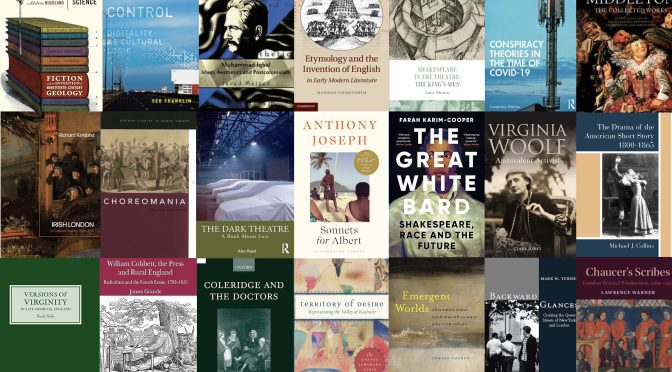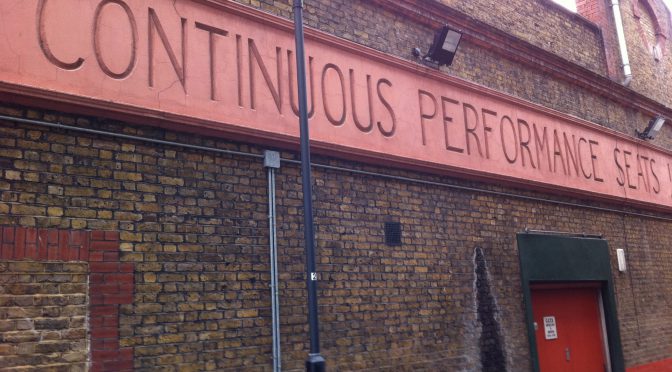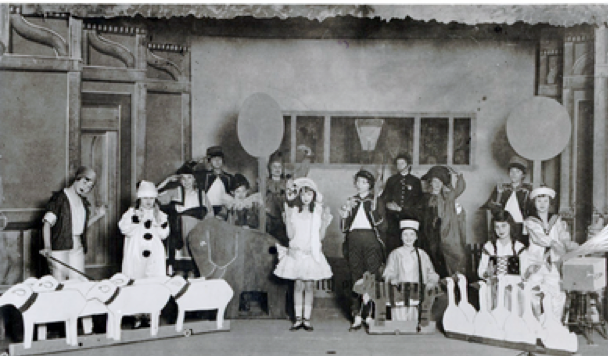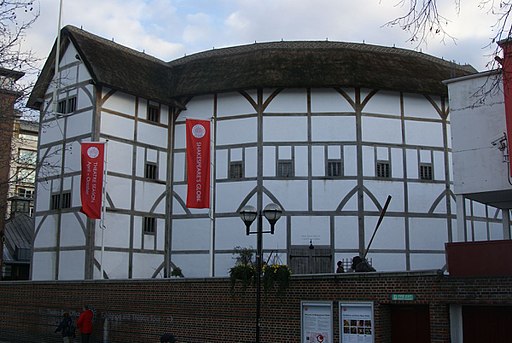Co-Editors Alexander Giesen and Felix Antelme introduce themselves and invite submissions.
Tag Archives: performance
The Dark Theatre: A Book About Loss
by Professor Alan Read
In the 1980s Alan was director of Rotherhithe Theatre Workshop, a neighbourhood theatre based in the Docklands area of South East London, in the 1990s he worked as a freelance writer in Barcelona and was Director of Talks at the Institute of Contemporary Arts in London, and from 1997-2006 he was Professor of Theatre at Roehampton University where he directed a five year AHRC research funded programme on performance, architecture and location exploring theatre and public ceremonial in rational housing blocks and council estates.
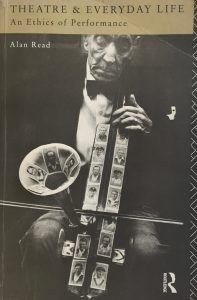
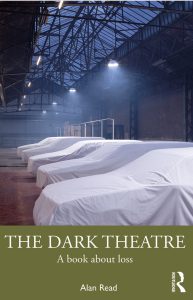
The Dark Theatre was written as a critical response to my first book Theatre & Everyday Life (Routledge, 1993). This book mimicks the ambitions and two-part structure of that earlier work but takes stock of the intervening quarter-century turn towards financialization and precarity in Western Europe, exploring a ‘general economy of performance’ by way of response to these capitalized conditions. The Dark Theatre is not an updating of the source work but instead engages with questions of community, ecology, and what I call ‘cultural cruelty’ as evidenced in practices ranging from theatrical acts to legal processes.
The Modernist Revue: A ‘whole made of shivering fragments’
by Emily Moore
Emily Moore is a Master’s student at King’s College London, taking the ‘Modern Literature and Culture’ course. Interested in rhythm in modernist literature, she is currently working on a dissertation that compares the works of Virginia Woolf and Gertrude Stein.
On Friday 21st June, Kings’ Gilbert Scott Chapel rang with fragments of modernist culture. Forming part of the British Association for Modernist Studies’ 2019 Conference ‘Troublesome Modernisms’, ‘The Modernist Revue’, organised by Anna Snaith, Clara Jones, and Natasha Periyan, saw an evening of music, dance, and poetry performances inspired by, or seeking to evoke, the character of the era. This it did, calling to mind a watchword of modernist studies that is constantly being reanimated and reinterpreted: fragmentation.
Continue reading The Modernist Revue: A ‘whole made of shivering fragments’
Engendering the Stage in London
by Hailey Bachrach and Dr Romola Nuttall, King’s College London
An Apology for Actors: Early Modern Playing Then and Now, King’s College London, Friday 10 May 2019
Research in Action: Engendering the Stage, Shakespeare’s Globe, Monday 13 May 2019.
“Engendering the Stage in the Age of Shakespeare and Beyond” brings together scholars, actors and theatre practitioners to analyse the performance of gender in early modern drama and investigate the effects of women’s performance on the skills, techniques and technologies of the performance of femininity in the drama of Shakespeare and his English and European contemporaries. In May, the project held two events in London at King’s and Shakespeare’s Globe.
The workshop at King’s considered children’s companies and female performers at court as well as professional, more typical, “actors”. The Research in Action event at Shakespeare’s Globe used scenes which include gendered expressions of rage for public performance and audience discussion.
Surviving Post-Truth Politics: The Theater of Ivo van Hove
By Susan Bennett and Sonia Massai
Susan Bennett is University Professor in the Department of English, University of Calgary, Canada. She is widely published across a variety of topics in theatre and performance studies, including Theatre Audiences (1997), Theatre & Museums (2013) and Sound (2019).
Sonia Massai is Professor of Shakespeare Studies at King’s College London, UK. She has published widely on the history of the transmission of Shakespeare in print and in performance. She is currently working on a new book on Shakespeare’s Accents: Voicing Identity in Performance and preparing a new edition of Richard III for the Arden Shakespeare.
When asked “What is politics?,” director Ivo van Hove’s answer is straightforward and uncompromising: “Politics is the antithesis of absolute truth.”
Continue reading Surviving Post-Truth Politics: The Theater of Ivo van Hove

